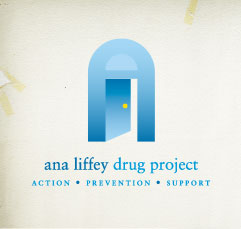Read the full report from Ana Liffey Drug Project here
This is the report of proceedings from the Dublin Drug Policy Summit, which was held in Dublin on 20th January 2017. The summit was hosted and organised by the Ana Liffey Drug Project, and brought together national and international experts in drug policy to talk about two key issues in current Irish drug policy – supervised injecting facilities and the decriminalisation of possession of drugs for personal use. The summit was held under the Chatham House Rule, and this report is consistent with that rule – what is reported on are the themes of the discussions, but no individual or organisation is identified as having made any particular statement. The report was prepared from the substantial notes of two observers from the Irish Management Institute who were in attendance on the day, with feedback on a first draft being provided by the Ana Liffey Drug Project prior to completion. Points reported are not presented in strict chronological order, but are rather grouped as general themes.
Below is an excerpt from the full report on the issue of policing.
POLICING IMPACT ON DRUG MARKETS AND CRIME LEVELS
Members of the public may be concerned about the impact Supervised Injecting Facilities have on crime levels and drug markets. These matters were discussed and the following was noted:
No increase in crime
International examples show us that there is no increase in crime associated with the introduction of Supervised Injecting Facilities. There has been some evidence of a reduction in certain types of crime and this should be explored further. Nonetheless, it was noted that supervised injecting is not a criminal justice intervention and should not be expected to impact significantly on crime, either positively or negatively. The key benefits will be in terms of service user health and public amenity.
No market influence
Similarly, it was noted that supervised injection facilities do not affect the drug market with sale, purchase and use continuing in the same areas. The presence of a Supervised Injecting Facility doesn’t influence the market, and is instead a response to an existing problem. However, Supervised Injecting Facilities can give real time drug trend updates and can respond more rapidly to emerging needs which has benefits.
ROLE OF POLICING
With the intense focus expected on the Supervised Injecting Facility in the early days many questions arose around the policing of the centre. The following points were noted on policing and supervised injecting:
The importance of law enforcement
The role of law enforcement agencies cannot be underestimated and the success of the project will depend on all stakeholders working together. In general, a relationship of trust between police and management of the facility is very important and a transparent relationship must be built from day one. Police must not target the centre and users but also must not avoid it. All police in the area should be educated on how to police the centre. This could form part of induction for all new police as well as a tour of the centre to see it first hand and dispel any myths. Different solutions for different jurisdictions Different jurisdictions operate different approaches in relation to policing. In Switzerland, police do not generally enter the centre unless they have been called for assistance in a violent case.
In Sydney, there is no ‘free zone’ around the centre. There is support from local police, and people coming to use the service are not actively targeted on the sole basis of a belief that they are heading towards the Supervised Injecting Facility and could be in possession of drugs. Where people are stopped, police in Sydney often use their discretion not to charge for possession, but they do still confiscate. It was noted that people working in addiction services can feel like they are working in a ‘gray area’, given that they are working with people who by the nature of their addiction will often be in possession of drugs, thereby creating a potential criminal liability for staff and clients unless addressed appropriately. It was also noted that the possibility of criminal sanction is not a deterrent to drug possession and use for someone who is dependent – necessity knows no law and what must be done, must be done. In the Irish context, it was noted that police are very aware of the complexities of policing in the context of social and health issues and take a very pragmatic approach to dealing with people on the street every day.
The importance of discretion
Discretion is important in policing supervised injecting facilities, and it was acknowledged that this presents challenges. Discretion is something which needs be applied consistently, and legislative clarity assists with this. If things are unclear, a very nuanced approach to complex issues is required, and it can be difficult to get a consistent approach. It is important that the facility is properly policed but not targeted. It was noted that policing is about all aspects of community safety and support, including health, and that police forces understand the role of consumption facilities in communities where they are needed. In terms of people using the centre, common sense dictates that if someone is merely walking towards the centre, there is no need to intervene absent any other reason. It was noted that issues of public injecting in Dublin city centre are currently policed in a conscientious way, and there is a lot of good collaborative work on the ground between the Gardai and other statutory services and NGOs.



